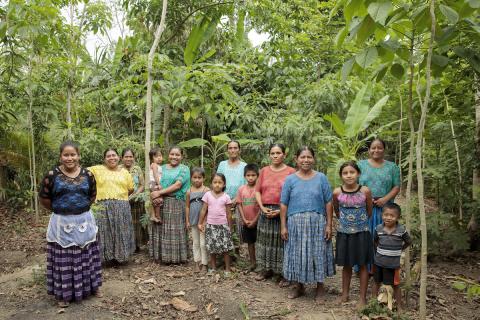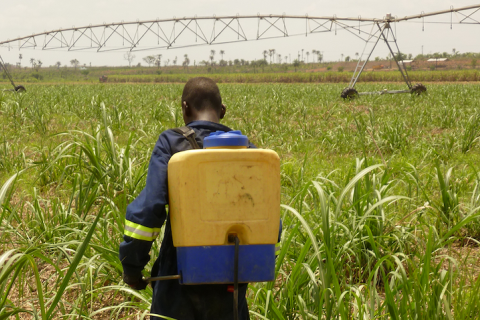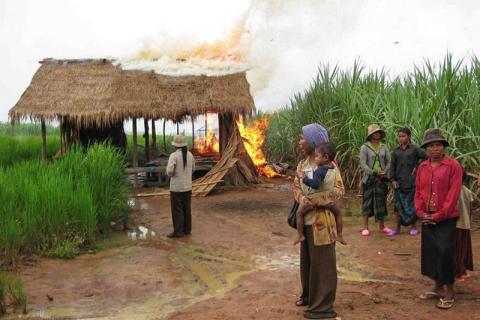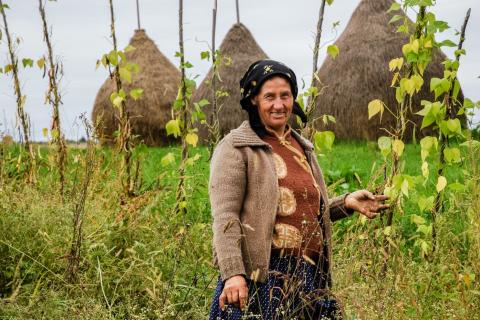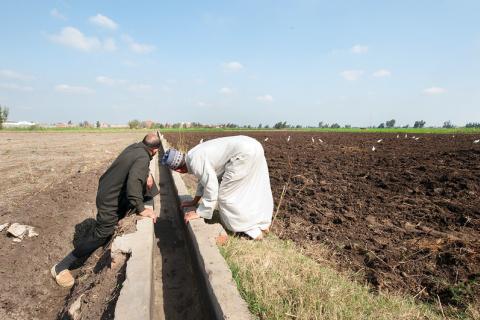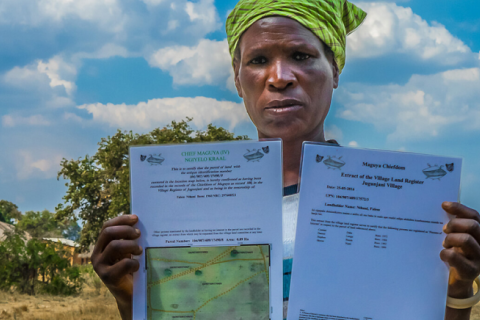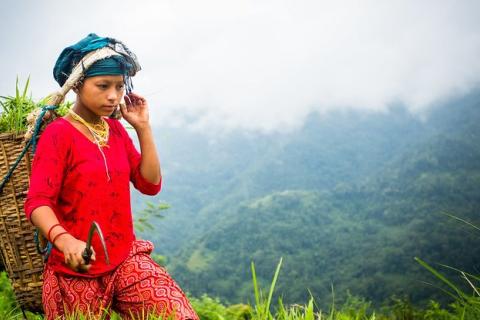Webinar Recap: Land Tenure Security Revisited
On 15 December 2022 the LAND-at-scale Knowledge Management team hosted a webinar Land tenure security revisited: Do we know what we need to know? that presented the preliminary findings of a study on tenure security authored by Guus van Westen, and Jaap Zevenbergen. The presentation of the study was followed by breakout sessions on tenure security and its relationship to women's land rights, the role of the state, land conflicts, and economic development facilitated by land experts and panelists who reported back to the plenary on the discussions with their respective reflections on the findings of the study.
To protect women and uproot patriarchy means confronting the links between land and gender-based violence
Multiple studies indicate that secure rights to land and other property can protect women from experiencing domestic violence by strengthening their position within their families or by providing women with a stronger ability to exit abusive relationships.
Gender justice for climate justice: what does collective forest governance look like for women in Indigenous Peoples and Local Communities?
Achieving the twin goals of protecting the planet and improving humanity’s wellbeing relies on women having the agency and space to co-govern the natural resources they - and their families - depend on for their livelihoods. Reflecting on COP27’s Gender Day, we look at how better understanding women’s access to, use, and control of land, forests and natural resources in Indigenous Peoples and Local Communities (IPLC) could be utilised to support climate action.
What’s Love Got to do With It? The Voluntary Guidelines on Tenure, Ten Years Later
Almost ten years ago, global donors who were focused on the role of land and property rights in promoting economic growth, mitigating food insecurity, and addressing climate change issues, came together in a United Nations (UN) body to negotiate an international agreement for voluntary guidelines to strengthen and secure land rights.
Human Rights Day: Land grabbing in Africa
Three new case studies show: In the context of large-scale land investments in Africa, human rights violations and social as well as environmental damages are the rule, not the exception. The message of the studies is therefore clear: development banks and their governments must do more for human rights and take responsibility for damages caused.
Law, Property and Disasters: Adaptive Perspectives from the Global South
What is the role of land law in natural disasters? Are current global systems of land law fit-for-purpose as we experience escalating rates of climate disruption?
Critical Insights on the Land Governance Orthodoxy
This panel took a critical look at the land governance orthodoxy that has consolidated on the heels of the financial crisis and outcry over "global land grabs" at the end of the 2000s.
Land Inequality Is a Crisis. Achieving Women’s Land Rights Is How We Respond.
Land. It is a commodity like no other. We live on it. We grow from it. We drink from it and build our futures upon it. But — increasingly and frighteningly so — we don’t share it equally.
The distribution of land has long defined the gap between rich and poor. Now new data shows clearer than ever how the way in which land is being shared and managed profoundly impacts extreme and rising inequality, and the achievement of women’s and girl’s rights.
RVO and FAO Round Table on Land Consolidation in the Arab World: Experiences from Egypt, Morocco, Sudan and Tunisia
What are the state-of-the-art and new approaches to land consolidation as part of integrated rural development strategies in North Africa and Near East? That was the main question around which several experts from Egypt, Morocco, Sudan, Tunisia, and Turkey joined the FAO/ RVO roundtable discussion on land consolidation during the Second Arab Land Conference last February; a session which 110 participants attended – both in person and online.
6 Ways USAID is Investing in Women’s Land Rights
Secure land and resource rights are critical for household wellbeing and livelihoods in many developing countries, where land is the principal asset for the rural poor.
New guide aims to accelerate forest tenure pathways to gender equality
Forest tenure reform in the global south has often failed to be gender-responsive, but there is increasing interest in taking up this challenge to activate effective change.
Now, a new guide created by scientists with the Center for International Forestry Research (CIFOR) aims to make the process more accessible, recommending a three-step process, billed as “analyze, strategize, and realize,” to support interventions in local and national contexts.




